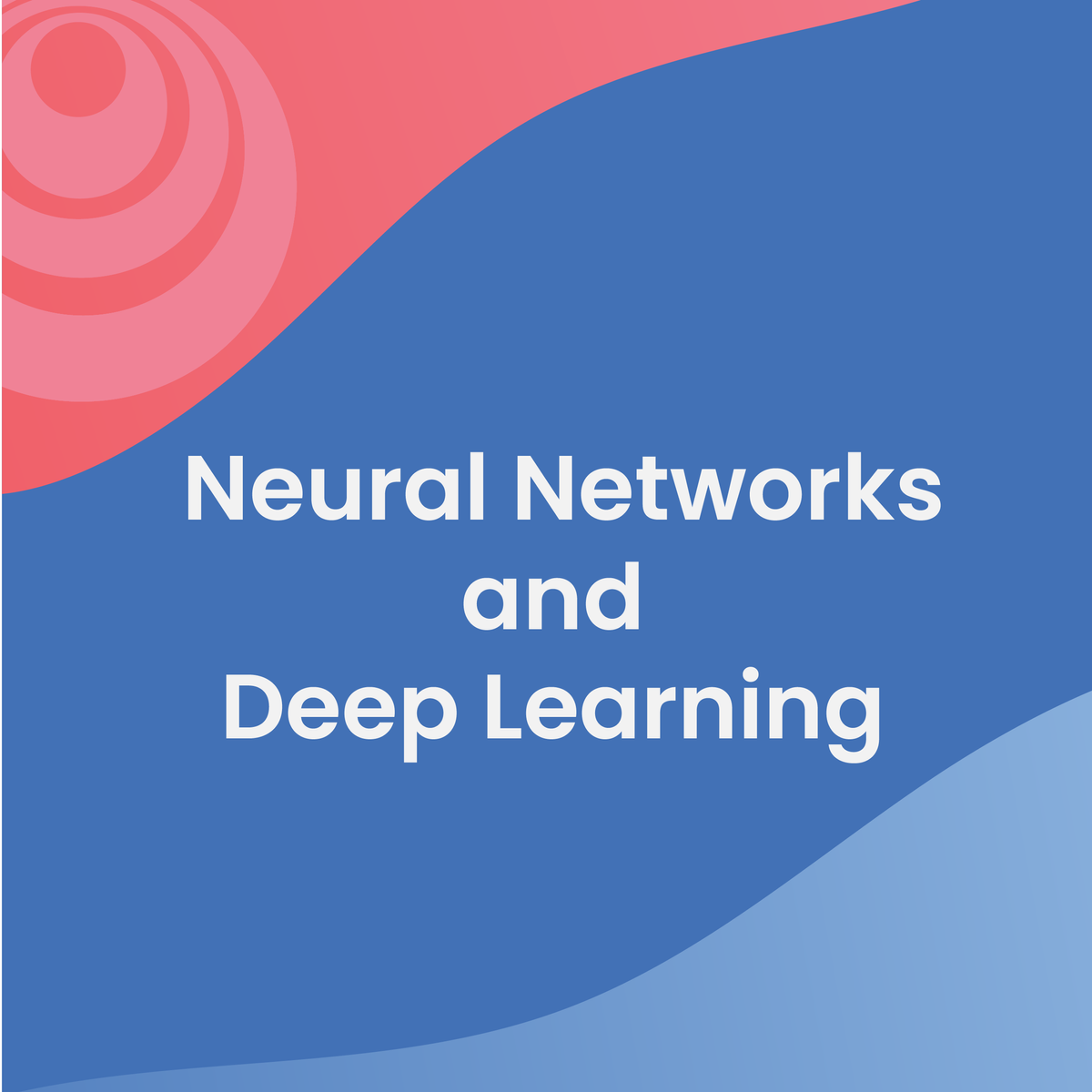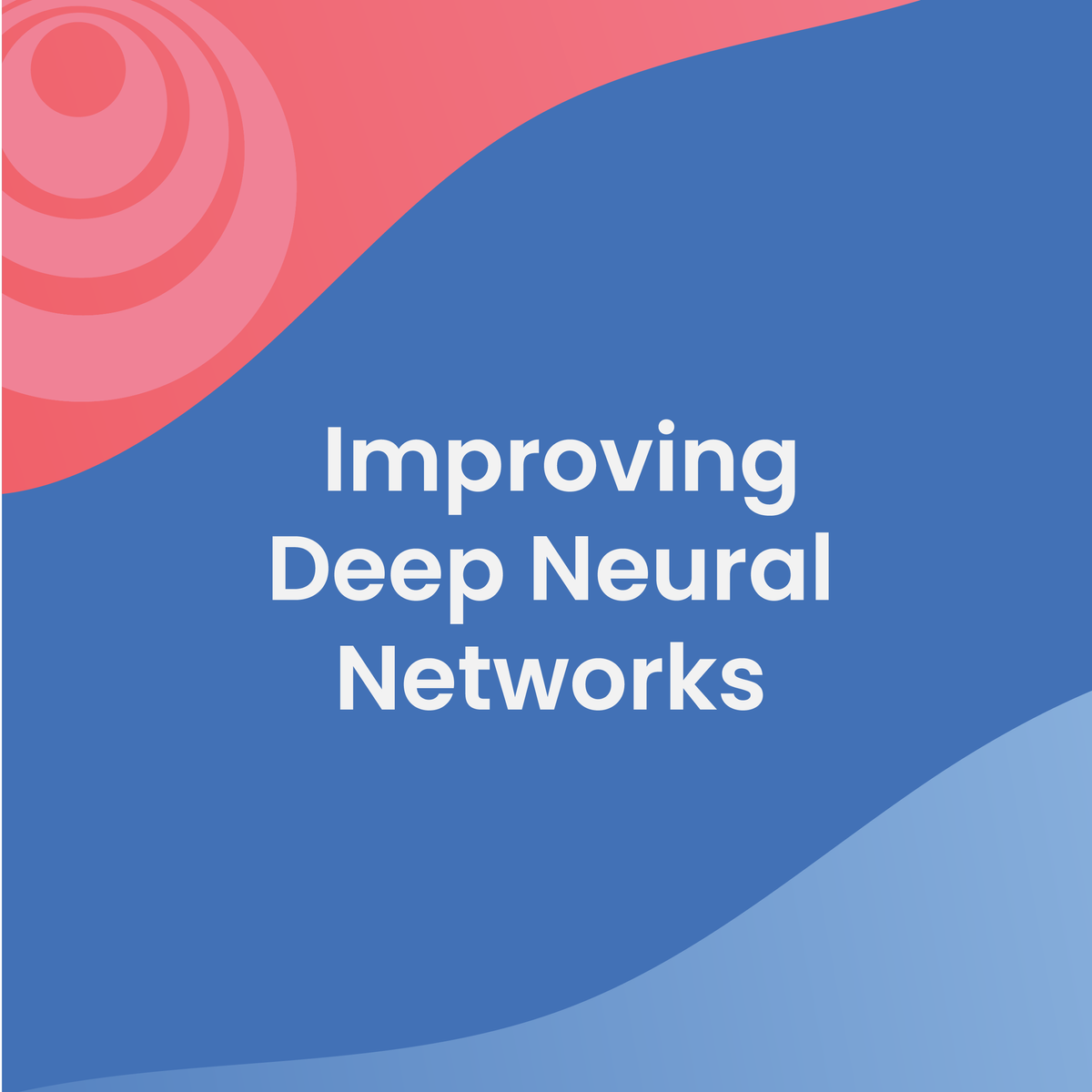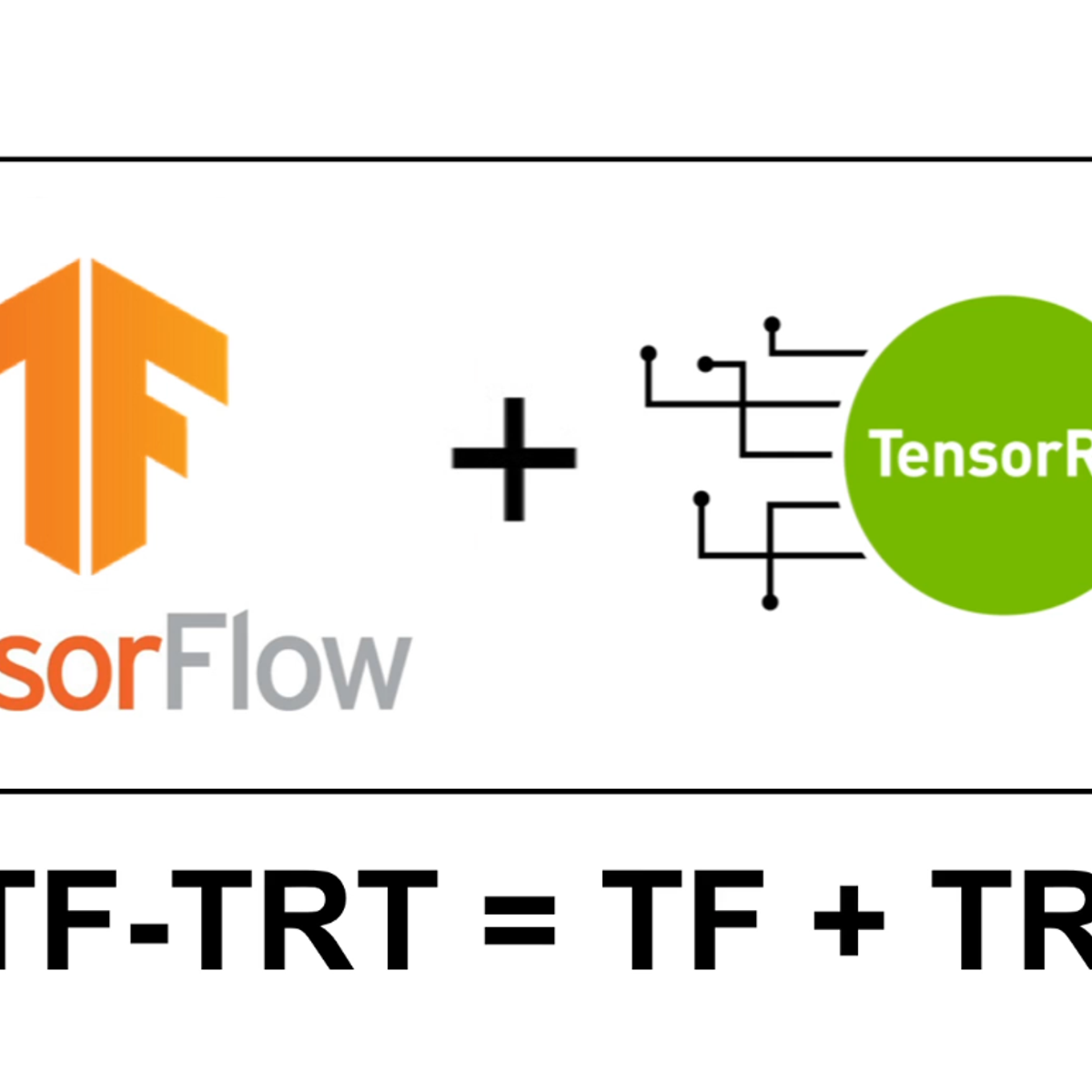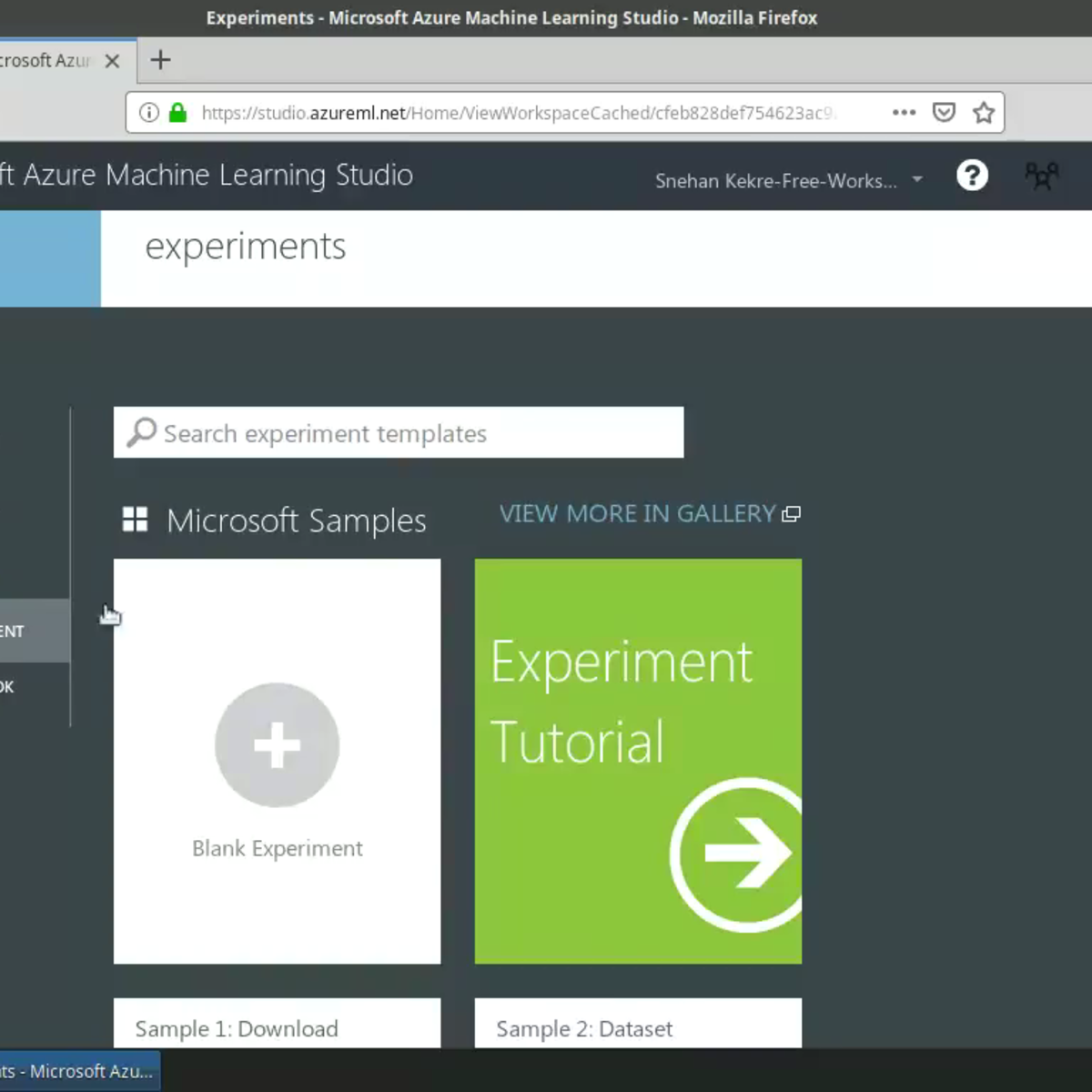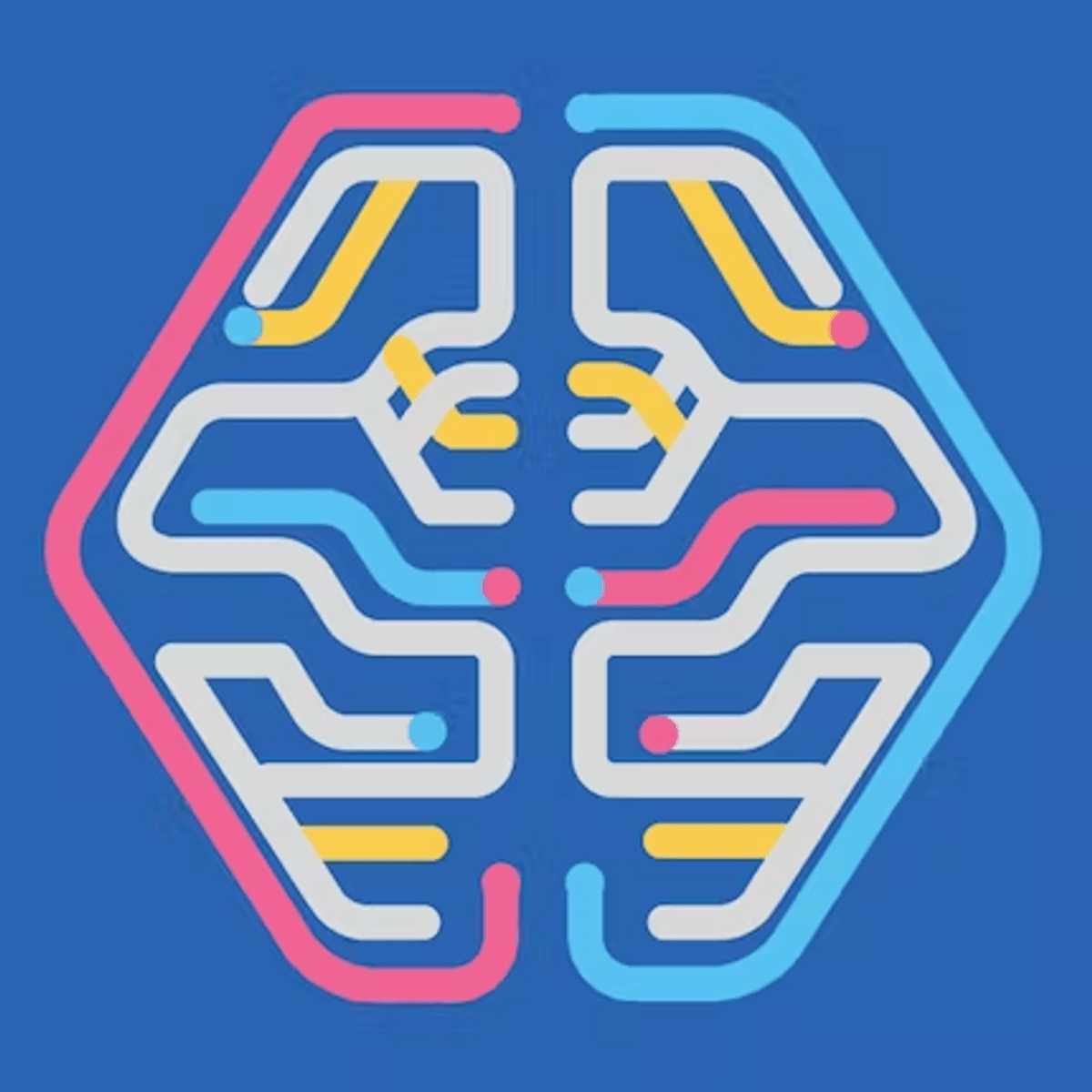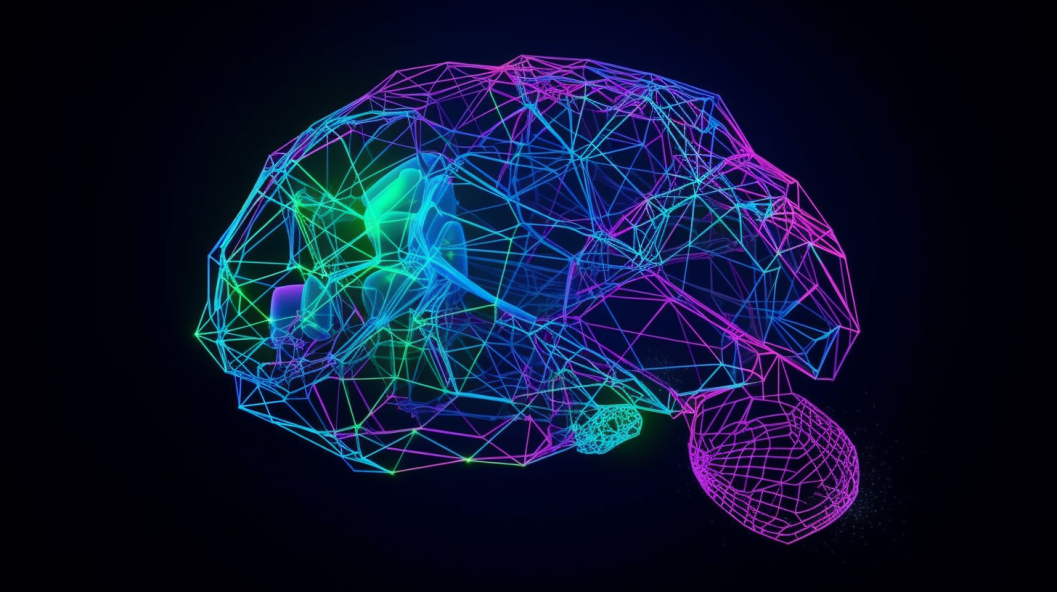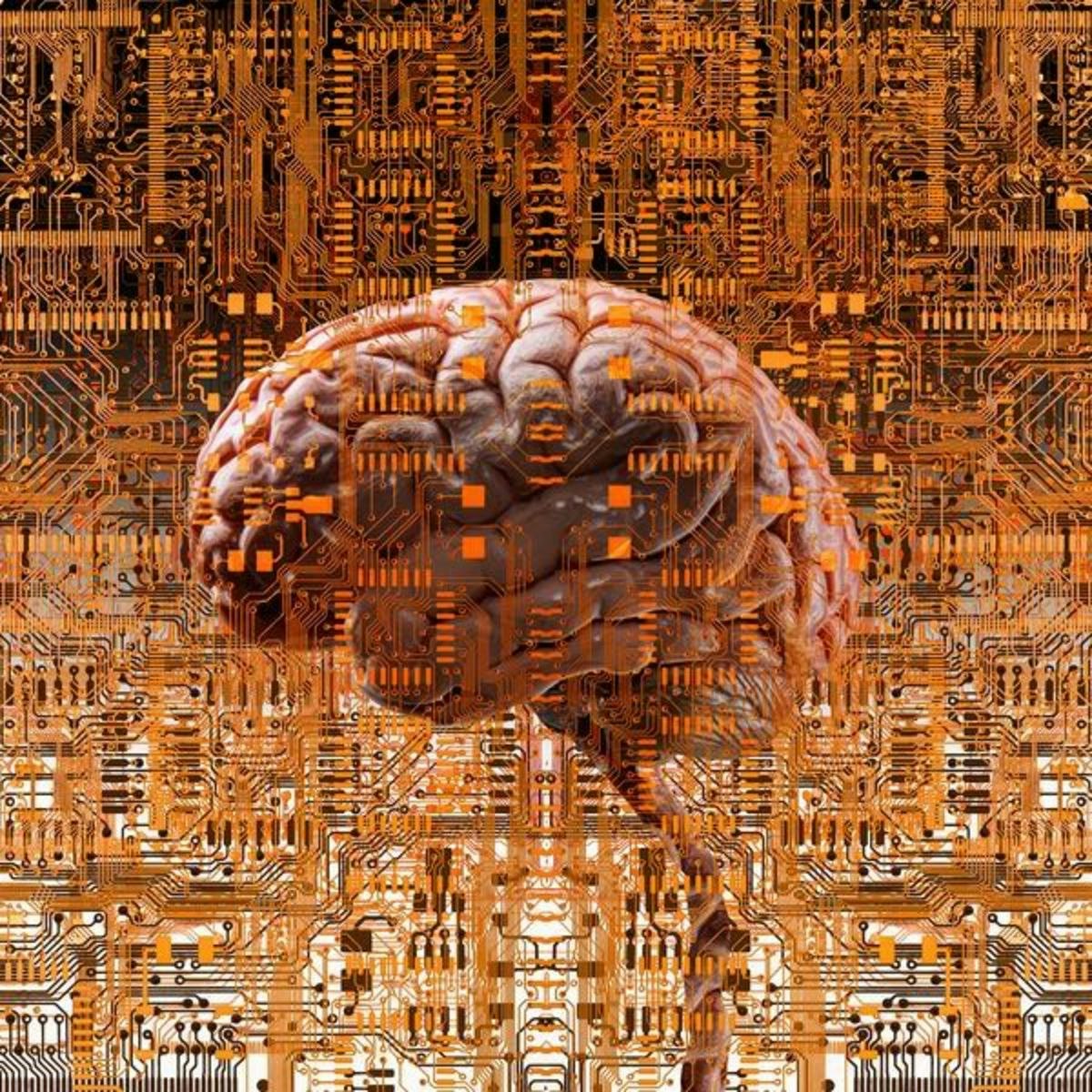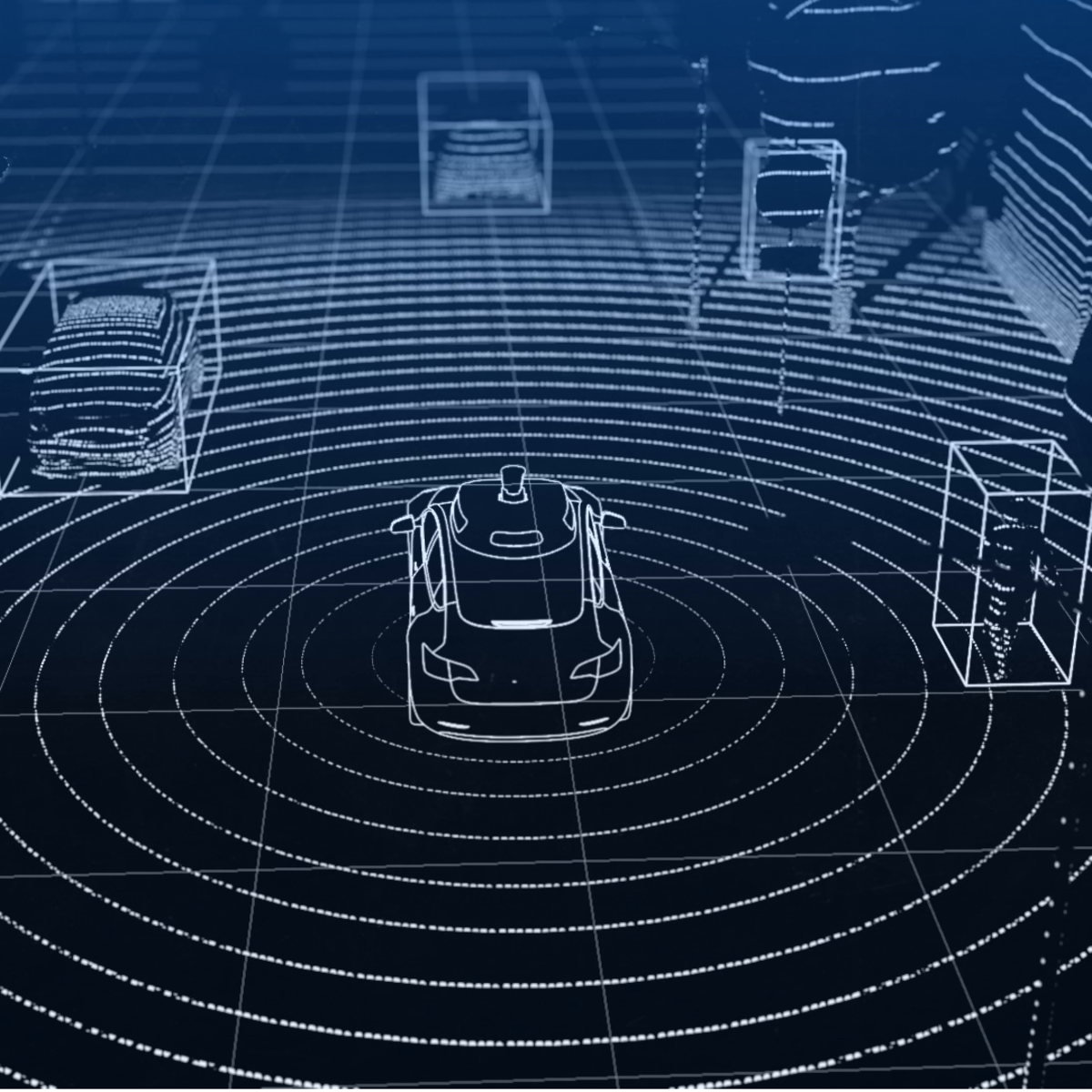Deep Learning Engineer
Deep Learning Engineer: A Comprehensive Career Guide
A Deep Learning Engineer stands at the forefront of artificial intelligence, designing and implementing the complex algorithms known as deep neural networks. These networks power some of the most advanced technologies today, from voice assistants and recommendation engines to medical diagnostics and autonomous vehicles. This role involves not just understanding the theory behind deep learning but also possessing the engineering prowess to build, train, and deploy these sophisticated models efficiently and reliably.
Working as a Deep Learning Engineer can be incredibly exciting. You'll often tackle challenging problems that push the boundaries of what machines can learn and do. There's immense satisfaction in seeing a model you've built recognize images, understand language, or make predictions with superhuman accuracy. Furthermore, the field is constantly evolving, offering continuous learning opportunities and the chance to contribute to groundbreaking advancements that can shape the future.
What is Deep Learning? An Analogy
Imagine you want to teach a child to recognize different types of animals. You wouldn't just give them a list of rules like "If it has four legs and barks, it's a dog." Instead, you'd show them many pictures of dogs, cats, birds, and fish. Over time, the child's brain figures out the important features – furry texture, pointy ears, wings, scales – without you explicitly stating every single rule.
Deep learning works similarly, but on a much larger scale using artificial neural networks. These networks are inspired by the structure of the human brain, with layers of interconnected "neurons." When you feed a neural network lots of data (like thousands of animal pictures), it adjusts the connections between its neurons to identify patterns and features automatically. "Deep" simply means the network has many layers, allowing it to learn increasingly complex patterns – from simple edges and textures in early layers to complete objects like faces or paws in later layers.
A Deep Learning Engineer designs these "brains," feeds them the right data "food," trains them through repetition (showing them the data many times), and then figures out how to put these trained brains to work in real-world applications, like identifying animals in photos or understanding spoken commands.
Core Responsibilities of a Deep Learning Engineer
The day-to-day work of a Deep Learning Engineer blends research, software engineering, and data analysis. Their responsibilities are critical in translating the potential of deep learning theory into tangible, functional applications.
Designing and Building Neural Network Architectures
A primary task is designing the structure of neural networks tailored to specific problems. This involves selecting appropriate layer types (like convolutional layers for images or recurrent layers for sequences), arranging them effectively, and defining how information flows through the network. It requires a deep understanding of different architectures like CNNs, RNNs, Transformers, and GANs, and knowing when to apply each.
Engineers experiment with different network depths, widths, and connection patterns. They often start with existing architectures proven to work on similar tasks (transfer learning) and adapt them. This design phase is iterative, involving cycles of building, testing, and refining the model's structure based on performance metrics.
Building these networks involves using deep learning frameworks. Proficiency in libraries like TensorFlow or PyTorch is essential for translating theoretical designs into working code. This requires strong programming skills and the ability to write efficient, maintainable, and scalable code.
For those starting with the core concepts of neural networks and deep learning, foundational courses are essential. These courses cover the principles behind network design and implementation.
To understand how these networks learn complex patterns, especially in visual data, courses focused on Convolutional Neural Networks (CNNs) are highly relevant.
Training and Optimizing Models
Once a model architecture is defined, it needs to be trained on large datasets. Deep Learning Engineers oversee this process, selecting appropriate training data, defining loss functions (how model error is measured), and choosing optimization algorithms (gradient descent variants like Adam) to adjust the model's parameters effectively.
Training deep learning models is computationally expensive and time-consuming. Engineers must efficiently manage resources, often using GPUs or specialized hardware (TPUs). They monitor the training process closely, looking for signs of overfitting (model performs well on training data but poorly on new data) or underfitting (model doesn't learn the patterns well).
Techniques like regularization, dropout, and batch normalization are employed to improve model generalization. Hyperparameter tuning – adjusting learning rates, batch sizes, and network configurations – is a critical part of optimization to achieve the best possible performance. This often involves automated tools or systematic experimentation.
Optimizing model performance often involves fine-tuning hyperparameters. Courses focused on optimization techniques and specific tools can be very helpful.
Collaboration and Deployment
Deep Learning Engineers rarely work in isolation. They collaborate closely with Data Scientists to understand data nuances, Data Engineers to build robust data pipelines, Software Engineers to integrate models into larger applications, and Product Managers to align development with business goals. Effective communication and teamwork skills are essential.
Deployment involves taking a trained model and making it available for use in a production environment. This requires skills in software engineering practices, including containerization (e.g., Docker), orchestration (e.g., Kubernetes), API development, and monitoring model performance and health over time.
Optimizing models for inference (making predictions on new data) is crucial, especially for real-time applications or deployment on resource-constrained devices (like mobile phones or edge devices). This might involve techniques like model quantization or pruning to reduce size and computational cost without significantly sacrificing accuracy.
Understanding deployment pipelines and tools is key. Courses covering model deployment and optimization are valuable for this stage.
Research, Innovation, and Ethics
The field moves rapidly, so staying updated with the latest research papers, techniques, and tools is part of the job. Engineers often read academic papers, attend conferences, and experiment with new ideas to improve existing models or tackle new problems.
Depending on the role, there might be a significant research component, involving the development of novel algorithms or architectures. This is particularly common in research labs or companies pushing the boundaries of AI.
Finally, Deep Learning Engineers must consider the ethical implications of their work. This includes addressing potential biases in data and models, ensuring fairness, maintaining data privacy, understanding the environmental impact of large-scale training, and considering the potential misuse of the technology. Building responsible and ethical AI is an increasingly important aspect of the role.
Essential Technical Toolkit
Building a successful career as a Deep Learning Engineer requires a strong foundation in several technical areas. While the specific tools might evolve, the core concepts remain crucial.
Programming Languages
Python is the dominant language in the deep learning ecosystem. Its extensive libraries (like NumPy, Pandas, Scikit-learn) for data manipulation and scientific computing, coupled with mature deep learning frameworks, make it the go-to choice for most practitioners. Strong proficiency in Python is almost always a requirement.
While Python is key for development and prototyping, C++ is often used when performance is paramount. Deploying models in environments with strict latency requirements or on hardware with limited resources might necessitate C++ expertise for optimizing inference speed. Some deep learning frameworks also have C++ APIs or allow integration with C++ code.
Understanding core programming concepts, data structures, and algorithms is fundamental, regardless of the language.
These courses offer introductions and deeper dives into Python specifically for data science and machine learning contexts.
This book provides a comprehensive look at Python for machine learning tasks.
Deep Learning Frameworks
Mastery of at least one major deep learning framework is essential. TensorFlow and PyTorch are the two leading contenders, each with its own strengths and ecosystem. TensorFlow, often used with the high-level API Keras, is known for its production readiness and deployment tools (like TensorFlow Lite and TensorFlow Serving). PyTorch is often favored in the research community for its flexibility and Pythonic feel.
Knowing the fundamentals of how these frameworks operate, how to build models, train them, debug issues, and deploy them is critical. Familiarity with Keras, which can run on top of TensorFlow (and other backends historically), is also highly valuable due to its ease of use for rapid prototyping.
Many online courses focus specifically on these crucial frameworks.
These books offer in-depth practical guidance on using frameworks like Keras, TensorFlow, and PyTorch.
Mathematical Foundations
Deep learning is built on mathematical principles. A solid understanding of Linear Algebra is crucial for comprehending how data is represented (vectors, matrices, tensors) and manipulated within neural networks. Calculus, particularly multivariate calculus and differentiation, is essential for understanding how models are trained via optimization algorithms like gradient descent and backpropagation.
Probability and Statistics are also vital. They underpin many concepts in machine learning, including loss functions, model evaluation, regularization techniques, and understanding uncertainty in predictions. Concepts like probability distributions, statistical measures, and hypothesis testing are frequently encountered.
While frameworks abstract away much of the raw math, a strong conceptual grasp allows engineers to understand *why* certain techniques work, debug models more effectively, and innovate beyond standard approaches.
Courses dedicated to the mathematical underpinnings are beneficial for building a solid theoretical base.
Cloud Computing and Infrastructure
Training large deep learning models requires significant computational resources, often found in the cloud. Familiarity with major cloud platforms like Amazon Web Services (AWS), Google Cloud Platform (GCP), or Microsoft Azure is increasingly important. This includes knowing how to provision and manage virtual machines with GPUs, use managed AI/ML services (like SageMaker, Vertex AI, Azure ML), and handle data storage.
Understanding containerization technologies like Docker and orchestration tools like Kubernetes is vital for packaging, deploying, and scaling deep learning applications reliably. These tools help ensure that models run consistently across different environments.
Knowledge of basic Linux command-line operations and scripting is also typically expected, as much of the infrastructure work happens in these environments.
Courses focused on cloud platforms and MLOps (Machine Learning Operations) provide practical skills for deployment.
Version Control and Software Engineering Practices
Deep Learning Engineers are essentially software engineers specializing in AI. Therefore, solid software engineering practices are essential. Proficiency with version control systems, primarily Git, is mandatory for managing codebases, collaborating with teams, and tracking experiments.
Understanding concepts like code testing, continuous integration/continuous deployment (CI/CD), code reviews, and writing clean, modular, and documented code are all crucial for building robust and maintainable deep learning systems. These practices ensure reliability and facilitate collaboration within engineering teams.
Pathways to Becoming a Deep Learning Engineer
There isn't one single road to becoming a Deep Learning Engineer. Individuals arrive from various backgrounds, including traditional academic routes and more self-directed learning paths. Both can lead to successful careers, often requiring a combination of theoretical knowledge and practical, hands-on experience.
Formal Education
A bachelor's degree in a quantitative field is often the starting point. Computer Science is the most common background, providing essential programming and algorithmic foundations. Degrees in Electrical Engineering, Statistics, Applied Mathematics, or Physics can also provide relevant skills, particularly strong mathematical intuition.
Many Deep Learning Engineers hold advanced degrees (Master's or PhD). A Master's degree, often specializing in AI, Machine Learning, or Data Science, can provide deeper theoretical knowledge and opportunities for specialized projects. Programs often bridge the gap between undergraduate studies and industry requirements.
A PhD is typically required for roles focused heavily on research and the development of entirely new algorithms or fundamental breakthroughs. These positions are common in academic institutions and corporate research labs (like Google Research, Meta AI, Microsoft Research). PhD programs involve intensive, multi-year research on a specific topic, culminating in a dissertation.
Regardless of the degree level, practical experience gained through internships, research assistantships, or significant capstone projects involving deep learning is highly valued by employers.
This comprehensive book covers fundamental AI concepts often taught in university courses.
Online Learning and Self-Study
The rise of online learning platforms has democratized access to high-quality educational content in deep learning. Massive Open Online Courses (MOOCs) offer structured learning paths, often taught by leading academics and industry experts. These courses cover everything from foundational mathematics and programming to advanced neural network architectures and framework usage.
Online courses are incredibly valuable for career pivoters or those supplementing formal education. They allow learning at one's own pace and focusing on specific skills needed for the role. Platforms like OpenCourser aggregate offerings, making it easier to find and compare relevant courses across various providers. Features like saving courses to a list can help organize your learning journey.
Beyond structured courses, self-study involves reading textbooks, research papers (often available on sites like arXiv), and engaging with technical blogs. Active participation in online communities (like Stack Overflow, specific subreddits, or Discord servers) can provide support and learning opportunities.
Foundational courses provide the necessary background to tackle more advanced topics.
More advanced courses dive deeper into specific techniques and frameworks.
The Importance of Projects and Portfolio
Theoretical knowledge alone is insufficient. Demonstrating practical ability through projects is paramount, especially for those without traditional academic credentials or extensive work experience. Building a portfolio of deep learning projects showcases skills and passion to potential employers.
Projects can range from implementing research papers from scratch, participating in online competitions (like those hosted on Kaggle), contributing to open-source deep learning libraries, or developing unique applications. The key is to choose projects that are challenging, demonstrate a range of skills (data processing, model building, evaluation, potentially deployment), and are well-documented (e.g., on GitHub).
Capstone projects, whether part of a formal degree or an online specialization, serve as excellent portfolio pieces. They often involve tackling a complex problem end-to-end.
Transitioning into deep learning can feel daunting. Building projects, even small ones initially, creates tangible proof of your growing skills and reinforces learning. Don't be discouraged if early projects aren't perfect; the process of building, debugging, and improving is where true learning happens. Your portfolio is evidence of your journey and capability.
This seminal textbook is a cornerstone resource for many deep learning practitioners.
Career Landscape and Growth
The field of deep learning engineering offers significant growth potential and diverse career paths. Demand for skilled professionals remains high across various industries as companies increasingly leverage AI technologies.
Typical Roles and Progression
Entry-level roles (often titled Junior Deep Learning Engineer, AI Engineer, or similar) typically focus on implementing, training, and evaluating existing model architectures under supervision. Tasks might include data preprocessing, running experiments, tuning hyperparameters, and assisting with model deployment.
Mid-level engineers take on more responsibility, often designing model architectures, leading smaller projects, optimizing models for performance, and mentoring junior team members. They possess a deeper understanding of the underlying principles and trade-offs involved in different approaches.
Senior and Principal Deep Learning Engineers tackle the most complex challenges. They might lead large projects or teams, define technical strategy, drive innovation, develop novel algorithms, and represent the team in cross-functional discussions or external conferences. They have deep expertise in multiple areas of deep learning and software engineering.
Related Roles and Transitions
Deep Learning Engineering shares significant overlap with related roles, offering pathways for transition. Software Engineers with strong mathematical aptitude and an interest in AI can transition by learning deep learning frameworks and principles, often leveraging their existing coding and systems skills.
Data Scientists focusing on predictive modeling might transition by deepening their expertise in neural networks and scaling models for production. Machine Learning Engineers often work closely with Deep Learning Engineers, with the distinction sometimes blurring; ML Engineers might have a broader focus including traditional ML algorithms, while DL Engineers specialize specifically in deep neural networks.
Transitioning often involves targeted upskilling through online courses, personal projects, or contributing to relevant projects within one's current company. Highlighting transferable skills (programming, data analysis, problem-solving) is key.
Progression Tracks: Technical vs. Management
As engineers gain experience, they often face a choice between deepening their technical expertise or moving into management. The technical track (Individual Contributor or IC) leads to roles like Senior, Staff, or Principal Engineer, focusing on solving complex technical problems, mentoring, and setting technical direction.
The management track involves leading teams, managing projects, hiring, and focusing on people and process development. Roles might include Engineering Manager, Director of AI, or similar titles. Both tracks offer rewarding career paths, depending on individual interests and strengths.
Industry Demand and Salary Insights
The demand for skilled Deep Learning Engineers has been consistently high. As AI continues to integrate into various sectors, companies seek experts who can build and deploy these powerful models. This demand is reflected in competitive salaries, although compensation varies significantly based on location, experience level, education (PhD holders often command higher salaries, especially in research roles), company size, and industry.
According to salary reports from recruitment firms like Robert Half, roles involving AI and machine learning skills are among the highest paying in the tech sector. Major tech hubs (like the San Francisco Bay Area, Seattle, New York) typically offer the highest salaries but also have a higher cost of living. The rise of remote work has also influenced compensation structures and geographic distribution of opportunities.
While the field is competitive, the projected growth in AI adoption suggests continued strong demand for deep learning expertise in the coming years. Staying current with rapidly evolving technologies is crucial for long-term career success.
Deep Learning in Action: Industry Applications
Deep learning's impact spans numerous industries, driving innovation and creating new possibilities. Engineers in this field have the opportunity to work on applications that significantly affect business operations and people's lives.
Healthcare and Life Sciences
Deep learning excels at finding patterns in complex medical data. Applications include analyzing medical images (X-rays, CT scans, MRIs) to detect diseases like cancer or diabetic retinopathy, sometimes achieving accuracy comparable to human experts. It's also used in drug discovery to predict molecule interactions, accelerate genomics research, and personalize treatment plans based on patient data.
Autonomous Systems and Robotics
Self-driving cars rely heavily on deep learning for perception – interpreting data from cameras, LiDAR, and radar to understand the environment, detect objects (pedestrians, other vehicles, traffic signs), and make driving decisions. Similarly, robots in manufacturing, logistics, and exploration use deep learning for navigation, object manipulation, and interaction with their surroundings.
Natural Language Processing (NLP)
Deep learning, particularly transformer models, has revolutionized how machines understand and generate human language. This powers virtual assistants (like Siri, Alexa), machine translation services (Google Translate), chatbots, sentiment analysis tools, text summarization, and content generation. Engineers work on models that can grasp context, nuance, and intent in text and speech.
Finance and E-commerce
In finance, deep learning is used for algorithmic trading, fraud detection, credit scoring, risk management, and analyzing market sentiment from news articles or social media. E-commerce platforms use it extensively for personalized product recommendations, optimizing search results, dynamic pricing, and detecting fake reviews.
Creative Arts and Entertainment
Generative deep learning models (Generative Adversarial Networks or GANs, Diffusion Models) are being used to create novel art, music, and designs. Applications also include enhancing video resolution (super-resolution), colorizing black-and-white films, generating realistic game environments, and creating special effects.
Navigating the Ethical Maze
As deep learning becomes more powerful and pervasive, the ethical responsibilities of engineers grow significantly. Building AI systems requires careful consideration of their potential societal impact and adherence to principles of responsible innovation.
Bias and Fairness
Deep learning models learn from data, and if that data reflects historical biases (e.g., gender, racial, or socioeconomic biases), the model will likely perpetuate and even amplify them. Engineers must actively work to identify and mitigate bias in datasets and model predictions. This involves using fairness metrics, exploring debiasing techniques, and ensuring diverse representation in training data.
Failure to address bias can lead to discriminatory outcomes in areas like hiring, loan applications, or even criminal justice, causing real harm. Ensuring fairness requires ongoing vigilance throughout the model development lifecycle.
Transparency and Explainability
Many deep learning models operate as "black boxes," making it difficult to understand precisely how they arrive at a particular decision. This lack of transparency can be problematic, especially in high-stakes domains like healthcare or finance. There is a growing need for techniques that make models more interpretable and explainable (Explainable AI or XAI).
Engineers may need to implement methods (like LIME or SHAP) that provide insights into model predictions or opt for inherently more interpretable model architectures when possible. Explainability builds trust and allows for better debugging and auditing of AI systems.
Data Privacy and Security
Deep learning models often require vast amounts of data, which can include sensitive personal information. Engineers must comply with data privacy regulations (like GDPR or CCPA) and implement techniques to protect user data. This might involve data anonymization, differential privacy, or federated learning (where models are trained on decentralized data without moving it).
Securing models against adversarial attacks – malicious attempts to fool or manipulate model predictions – is also crucial. This requires understanding potential vulnerabilities and building robust defenses.
Environmental Impact
Training very large deep learning models consumes substantial amounts of electricity, contributing to carbon emissions. Engineers and researchers are increasingly exploring ways to make deep learning more energy-efficient. This includes developing more efficient model architectures, optimizing training processes, and utilizing hardware accelerators more effectively.
Considering the environmental footprint is becoming an essential part of responsible AI development. Choosing greener cloud providers or optimizing model size can make a difference.
The Hiring Process for Deep Learning Engineers
Landing a role as a Deep Learning Engineer typically involves a multi-stage interview process designed to assess technical depth, practical skills, problem-solving abilities, and cultural fit. Preparation is key to navigating this process successfully.
Resume and Portfolio Screening
The first step is getting noticed. Your resume should clearly highlight relevant skills (programming languages, frameworks, math), education, and, most importantly, experience. For deep learning roles, quantifiable achievements and specific projects carry significant weight. Use keywords from job descriptions but focus on impact.
A strong portfolio (often hosted on GitHub) is crucial, especially for early-career candidates or those transitioning from other fields. It should showcase well-documented projects demonstrating your ability to tackle deep learning problems end-to-end. Include clear explanations of the problem, your approach, the results, and the code itself.
Technical Interviews
Technical interviews vary but often include several components. Coding challenges are common, testing proficiency in Python (or sometimes C++), data structures, and algorithms. These might be done on a whiteboard, shared editor, or online platform. Expect questions related to manipulating data, implementing basic ML concepts, or solving general programming problems.
Deep learning theory questions assess your understanding of fundamental concepts: neural network architectures (CNNs, RNNs, Transformers), training processes (backpropagation, optimization algorithms), regularization techniques, evaluation metrics, and the underlying mathematics (linear algebra, calculus).
Machine Learning System Design questions might ask you to outline how you would approach building a system for a specific task (e.g., a recommendation engine, an image classifier). This assesses your ability to think about the entire pipeline, from data collection and preprocessing to model selection, training, deployment, and monitoring.
Studying core concepts and practicing coding problems are essential preparation steps.
Behavioral and Fit Interviews
Beyond technical skills, companies want to assess your communication abilities, teamwork potential, problem-solving approach, and alignment with company values. Expect questions about past projects (challenges faced, solutions implemented), collaboration experiences, handling difficult situations, and your motivation for the role and the company.
Be prepared to discuss your portfolio projects in detail, explaining your design choices and learnings. Articulating your thought process clearly is as important as the final answer. Asking thoughtful questions about the team, projects, and company culture also demonstrates engagement.
Preparing for interviews is an active process. Consider mock interviews and practicing explanations of complex topics in simple terms. Resources focusing on technical interviews can be helpful.
The Future of Deep Learning Engineering
The field of deep learning is characterized by rapid evolution and expansion. While predicting the exact future is challenging, several trends suggest directions for Deep Learning Engineers.
Automation and AutoML
Automated Machine Learning (AutoML) tools aim to automate parts of the deep learning workflow, such as hyperparameter tuning, architecture search, and even feature engineering. While these tools can increase efficiency, they are unlikely to replace engineers entirely. Instead, engineers will likely leverage these tools to focus on more complex aspects of problem formulation, data strategy, deployment, ethics, and interpreting results. The role may shift towards overseeing and guiding automated systems.
Hardware Acceleration and Efficiency
As models grow larger, the need for specialized hardware (GPUs, TPUs, neuromorphic chips) and efficient algorithms intensifies. Engineers will need to understand how to best utilize this hardware and develop models that are computationally efficient, both for training and inference, particularly for edge devices with limited power and compute capabilities.
Techniques like model compression, quantization, and knowledge distillation will remain important. Research into energy-efficient deep learning will also likely gain prominence due to environmental concerns.
Advancements in Architectures and Techniques
New architectures and learning paradigms continually emerge. Transformers have dominated NLP and are making inroads into computer vision. Graph Neural Networks (GNNs) are proving effective for structured data. Reinforcement learning combined with deep learning (Deep RL) is advancing capabilities in control and decision-making.
Engineers must engage in continuous learning to stay abreast of these developments. Lifelong learning through courses, papers, and conferences is essential for staying relevant.
Integration with Other Fields and Responsible AI
Deep learning will likely become more deeply integrated with other scientific and engineering disciplines, requiring cross-disciplinary collaboration. Furthermore, the focus on responsible AI – encompassing fairness, transparency, privacy, security, and accountability – will intensify. Engineers will need a strong ethical framework and the skills to implement responsible AI practices.
Regulatory landscapes surrounding AI are also evolving globally, and engineers will need to understand and comply with relevant regulations in their applications.
Related Careers and Topics
Deep Learning Engineering sits within the broader landscape of data-driven roles and artificial intelligence. Understanding related fields can provide context and reveal alternative or complementary career paths.
Related Careers
Machine Learning Engineer: Often has a broader scope than a DL Engineer, working with traditional ML algorithms (like SVMs, Random Forests) in addition to deep learning. Focuses heavily on building, deploying, and maintaining ML systems in production.
Data Scientist: Typically focuses more on analysis, deriving insights from data, statistical modeling, and communicating findings to business stakeholders. While they may build models (including DL models), their role often emphasizes analysis and interpretation over production engineering.
AI Researcher: Primarily focused on advancing the state-of-the-art in artificial intelligence, developing new algorithms, theories, and techniques. Usually requires a PhD and often works in academic or corporate research labs.
Data Engineer: Specializes in building and maintaining the data infrastructure (pipelines, databases, data warehouses) that supports data science and machine learning workflows. Ensures data is reliable, accessible, and efficiently processed.
Related Topics
Artificial Intelligence (AI): The broad field encompassing the creation of intelligent agents that can reason, learn, and act autonomously. Deep learning is a subfield of AI.
Machine Learning (ML): A subset of AI focused on algorithms that allow systems to learn from data without being explicitly programmed. Deep learning is a specific type of machine learning.
Computer Vision: A field concerned with enabling computers to "see" and interpret visual information from images or videos. Deep learning, especially CNNs, is heavily used in computer vision.
Natural Language Processing (NLP): Focuses on the interaction between computers and human language. Deep learning, particularly RNNs and Transformers, drives modern NLP.
Exploring these related areas can broaden your understanding and potentially open up new career interests. You can find courses and resources on these topics by browsing categories like Artificial Intelligence and Data Science on OpenCourser.
Frequently Asked Questions (FAQs)
Navigating a career in deep learning often brings up common questions. Here are answers to some frequently asked ones.
What is the typical salary range for a Deep Learning Engineer?
Salaries vary widely based on experience, location, education, and company. Entry-level positions might start around $100,000 - $130,000 USD in major US tech hubs, while mid-level roles can range from $130,000 to $180,000+. Senior and Principal engineers, especially those with PhDs or specialized expertise, can earn well over $200,000, potentially much higher with stock options at large tech companies. Global variations are significant; consulting salary surveys from firms like Robert Half or checking levels.fyi can provide more specific, up-to-date data.
How does a Deep Learning Engineer differ from a Data Scientist?
While both roles work with data and models, the focus differs. Deep Learning Engineers specialize in designing, building, training, and deploying deep neural networks, often requiring strong software engineering skills for production environments. Data Scientists typically have a broader scope, focusing on extracting insights from data, statistical analysis, communicating findings, and building predictive models (which may or may not involve deep learning). The emphasis for a DL Engineer is more on the engineering and deployment of complex neural network models.
What kind of hardware do I need for personal deep learning projects?
While serious model training requires powerful hardware, you don't necessarily need an expensive setup to start learning. Many introductory projects can run on a standard laptop CPU. For more intensive tasks, cloud platforms (Google Colab, Kaggle Kernels, AWS/GCP/Azure) offer free or affordable access to GPUs. If investing in personal hardware, a modern computer with a dedicated NVIDIA GPU (with sufficient VRAM, e.g., 8GB+) is the most common choice, as major frameworks have strong GPU acceleration support via CUDA.
Is it too late to enter the field if I'm older or changing careers?
Absolutely not. While the field attracts many young graduates, skills and experience are valued regardless of age. Career changers often bring valuable domain knowledge or software engineering experience that can be highly relevant. The key is demonstrating proficiency in deep learning concepts and practical skills, often through a strong project portfolio. Dedication to continuous learning is crucial for everyone in this rapidly evolving field. Embracing online resources and building projects can effectively bridge skill gaps.
Feeling apprehensive about a career change is normal. Focus on leveraging your existing strengths and systematically acquiring new skills. The journey requires effort, but the field welcomes talent from diverse backgrounds. Resources like the OpenCourser Learner's Guide can offer strategies for effective self-learning.
Are industry certifications valuable for Deep Learning Engineers?
Specific deep learning certifications exist (e.g., TensorFlow Developer Certificate, cloud provider AI/ML specialties), but they generally carry less weight than demonstrated skills through projects, experience, or formal education (especially advanced degrees). Certifications can be useful for structuring learning, demonstrating foundational knowledge (particularly with specific platforms like AWS or GCP), and potentially helping a resume pass initial screening. However, they are rarely a substitute for a strong portfolio and solid performance in technical interviews.
Are there freelancing or consulting opportunities for Deep Learning Engineers?
Yes, opportunities exist, particularly for experienced engineers with specialized expertise. Startups or companies without dedicated AI teams might hire freelancers or consultants for specific projects, model development, or strategic advice. Building a strong reputation, network, and portfolio demonstrating successful project delivery is key to securing freelance work. Platforms specializing in tech freelancing can be a starting point, but direct networking often yields better opportunities.
Useful Resources and Links
Continuing your journey in deep learning requires ongoing learning and engagement with the community. Here are some helpful resources:
- Online Course Platforms: Use OpenCourser to discover and compare thousands of courses in AI, deep learning, and related fields from various providers.
- Academic Papers: arXiv (cs.LG, cs.CV, cs.CL sections) is the primary repository for pre-print research papers. Keeping up with recent publications is crucial.
- Cloud Platform Documentation: Deep dive into the AI/ML services offered by major cloud providers:
- Framework Documentation: Official documentation for TensorFlow and PyTorch are essential references.
- Competitions and Communities: Kaggle offers datasets, competitions, and community forums.
- Industry News and Blogs: Stay updated through reputable tech news sites like TechCrunch AI or Wired AI, and blogs from major AI research labs.
-
OpenCourser Resources:
- Explore curated course lists and learning paths on the OpenCourser Notes blog.
- Find tips on effective online learning in the Learner's Guide.
- Check for savings on courses and tools on the Deals page.
Embarking on a career as a Deep Learning Engineer is a challenging yet immensely rewarding path. It requires a blend of strong technical foundations, practical engineering skills, a commitment to continuous learning, and an awareness of ethical responsibilities. By leveraging available resources, building practical experience, and staying curious, you can position yourself for success in this dynamic and impactful field.


